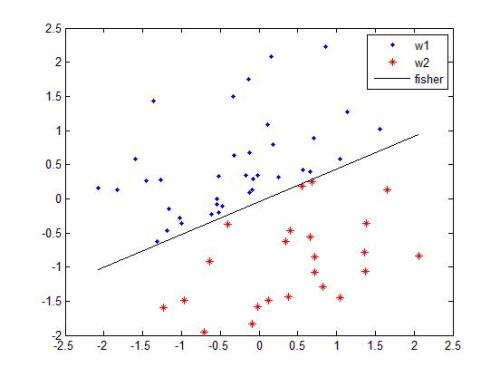The prototypical network is a prototype classifier based on meta-learning and is widely used for few-shot learning because it classifies unseen examples by constructing class-specific prototypes without adjusting hyper-parameters during meta-testing. Interestingly, recent research has attracted a lot of attention, showing that a linear classifier with fine-tuning, which does not use a meta-learning algorithm, performs comparably with the prototypical network. However, fine-tuning requires additional hyper-parameters when adapting a model to a new environment. In addition, although the purpose of few-shot learning is to enable the model to quickly adapt to a new environment, fine-tuning needs to be applied every time a new class appears, making fast adaptation difficult. In this paper, we analyze how a prototype classifier works equally well without fine-tuning and meta-learning. We experimentally found that directly using the feature vector extracted using standard pre-trained models to construct a prototype classifier in meta-testing does not perform as well as the prototypical network and linear classifiers with fine-tuning and feature vectors of pre-trained models. Thus, we derive a novel generalization bound for the prototypical network and show that focusing on the variance of the norm of a feature vector can improve performance. We experimentally investigated several normalization methods for minimizing the variance of the norm and found that the same performance can be obtained by using the L2 normalization and embedding space transformation without fine-tuning or meta-learning.
翻译:原型网络是一个基于元学习的原型分类器,它被广泛用于少见的学习,因为它通过在元测试期间不调整超参数而建立特定类原型,从而将不可见的例子分类为新环境。有趣的是,最近的研究吸引了许多注意力,显示一个不使用元学习算法的线性分类器,它与原型网络不进行微调,其运作与原型网络不相上下。然而,微调在调整模型以适应新环境时需要额外的超参数。此外,虽然微小的学习的目的是使模型能够迅速适应新环境,但每次出现新类时,都需要进行微调。在本文中,我们分析一个原型分类器如何在不进行微调和元学习的情况下同样运作良好。我们实验发现,直接使用标准预培训模型来建立原型分类器进行元测试时,其效果与原型网络和直线性能分类不及精微调整和原型矢量矢量矢量的模型不同。因此,我们可以不以新的一般性能标准化模式为主,同时将一些常规性变变压。




